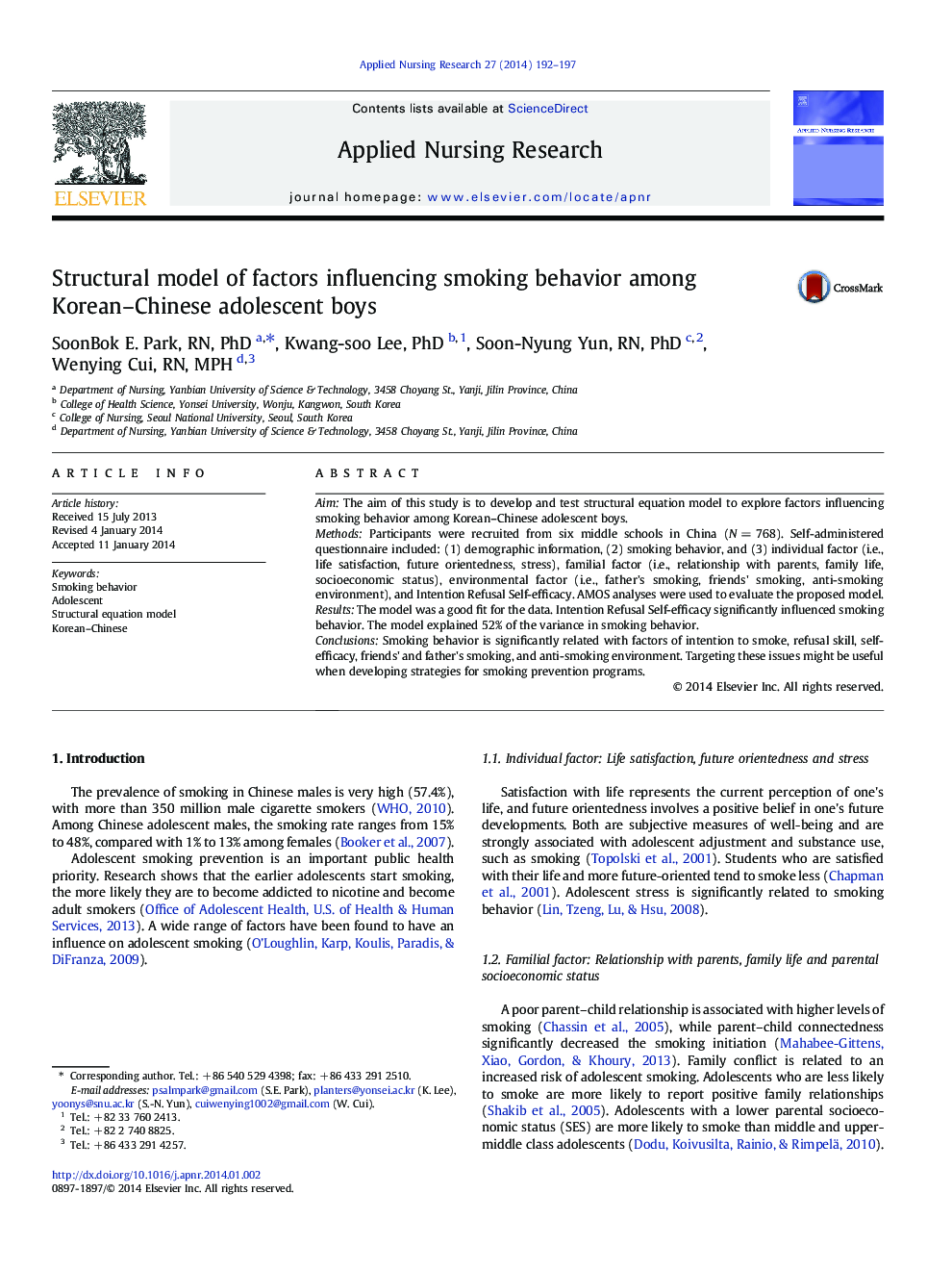| کد مقاله | کد نشریه | سال انتشار | مقاله انگلیسی | نسخه تمام متن |
|---|---|---|---|---|
| 2644590 | 1138342 | 2014 | 6 صفحه PDF | دانلود رایگان |
AimThe aim of this study is to develop and test structural equation model to explore factors influencing smoking behavior among Korean–Chinese adolescent boys.MethodsParticipants were recruited from six middle schools in China (N = 768). Self-administered questionnaire included: (1) demographic information, (2) smoking behavior, and (3) individual factor (i.e., life satisfaction, future orientedness, stress), familial factor (i.e., relationship with parents, family life, socioeconomic status), environmental factor (i.e., father's smoking, friends' smoking, anti-smoking environment), and Intention Refusal Self-efficacy. AMOS analyses were used to evaluate the proposed model.ResultsThe model was a good fit for the data. Intention Refusal Self-efficacy significantly influenced smoking behavior. The model explained 52% of the variance in smoking behavior.ConclusionsSmoking behavior is significantly related with factors of intention to smoke, refusal skill, self-efficacy, friends' and father's smoking, and anti-smoking environment. Targeting these issues might be useful when developing strategies for smoking prevention programs.
Journal: Applied Nursing Research - Volume 27, Issue 3, August 2014, Pages 192–197
